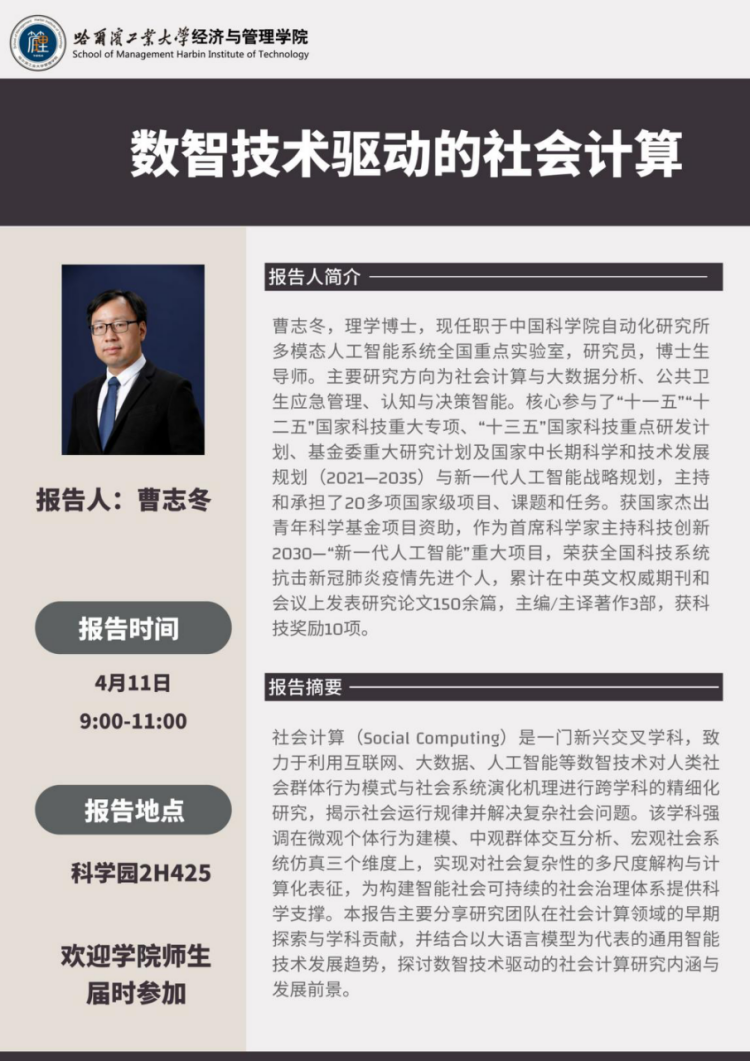Lecture Time: April 11th, 9:00-11:00
Lecture Venue: Science Park 2H425
Lecture Topic: Social Computing Driven by Digital Intelligence Technologies
Professor Profile:
Zhidong Cao, Ph.D. in Science, currently serves as a researcher and doctoral supervisor at the National Key Laboratory of Multi-modal Artificial Intelligence Systems, Institute of Automation, Chinese Academy of Sciences. His main research areas include social computing and big data analytic, public health emergency management, and cognitive and decision intelligence. He has led and participated in over 20 national-level projects, research topics, and tasks. He was awarded the National Science Fund for Distinguished Young Scholars and served as the chief scientist for the major project "New Generation Artificial Intelligence" under the National Key Program of China. He was honored as an Advanced Individual in the National Science and Technology System's Fight Against COVID-19. He has published more than 150 research papers in authoritative Chinese and English journals and conferences, authored/translated 3 books, and received 10 scientific and technological awards.
Lecture Abstract:
Social Computing is an emerging interdisciplinary field dedicated to conducting refined cross-disciplinary research on human social group behavior patterns and the evolutionary mechanisms of social systems by leveraging digital intelligence technologies such as the internet, big data, and artificial intelligence. It aims to uncover the laws governing social operations and address complex societal issues. This discipline emphasizes the multi-scale deconstruction and computational representation of social complexity across three dimensions: micro-level individual behavior modeling, meso-level group interaction analysis, and macro-level social system simulation, thereby providing scientific support for building sustainable social governance systems in an intelligent society. This report primarily shares the research team's early explorations and disciplinary contributions in the field of Social Computing. It also discusses the research implications and development prospects of digital intelligence-driven Social Computing in light of the evolving trends in general-purpose intelligent technologies, represented by large language models.


